Care sector woes leave frail at risk, regulator says
- Published
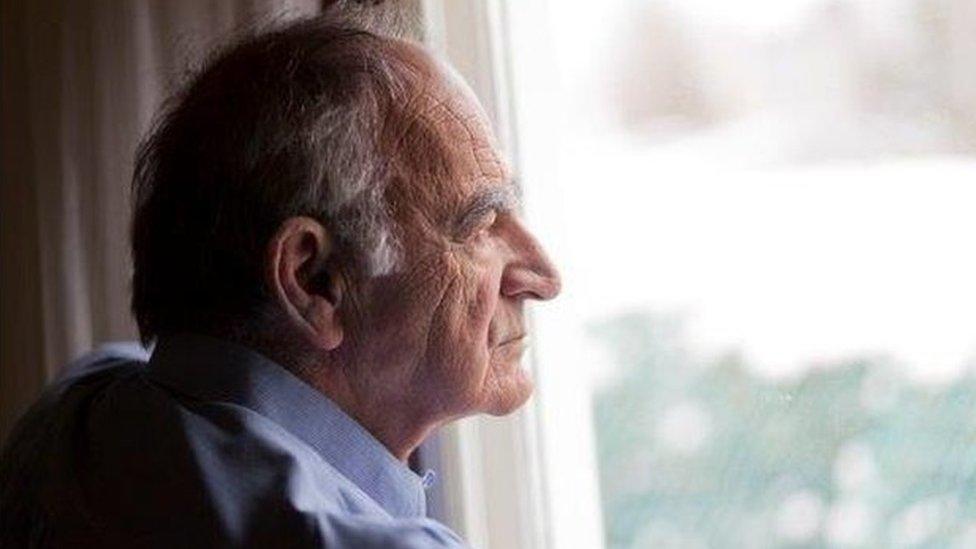
The whole care market for older and disabled people in England could be at risk, the official regulator says.
Evidence gathered by the Care Quality Commission, and seen by the BBC, shows the regulator is worried over the "pace" of care home closures.
Over the past six years, the number of homes has fallen by nearly 1,500 to 16,600.
The document also warns about the number of home care providers turning their back on council contracts.
The CQC could not provide figures for this when asked by the BBC, although data compiled by the Association of Directors of Adult Social Services suggested two-thirds of local authorities had seen contracts handed back or providers leave the market.
The document though describes "fragility" in this part of the sector, which provides help for daily tasks such as washing and dressing.
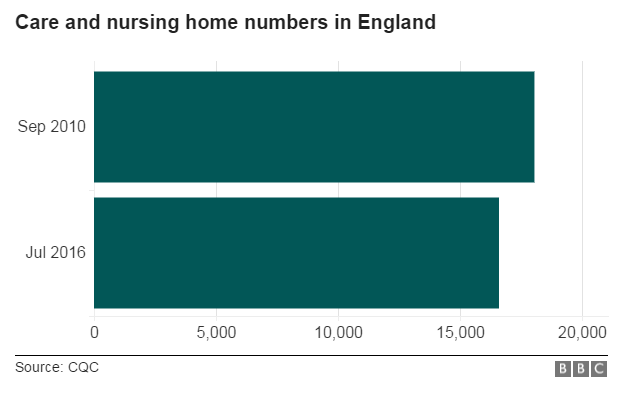
The CQC evidence has been compiled from 2015 figures submitted by 39 of the biggest providers in the care market. They represent an estimated quarter of the market and take part in an anonymised monitoring regime run by the CQC.
It has been designed to guard against sudden market failures like the one seen five years ago with the collapse of Southern Cross, which left more than 30,000 older people at risk of being forced out of their care homes. Other providers were eventually found to take on the homes.
The CQC document - shared at an internal meeting of the industry and care sector in September - raises concerns about the future for providers that rely heavily on local authority contracts for their business.
The market is split between council-funded care, which is provided to 1.3 million people, mainly the elderly, and services paid for by individuals themselves.
Find out the cost of care in your area
Providers have been warning for some time that the fees paid by councils have failed to keep up with the costs of care.
And the CQC document supports this saying recent fee increases have not covered the cost of implementing the national living wage which came in this year.
It says this position is "unsustainable" and raises the concern of standards falling as providers struggle to provide care for the fees being paid.

The home care provider leaving the market

Housing And Care 21 is one of the biggest home care providers in the country. It works with 150 local authorities to provide care for elderly and disabled people, amounting to 35,000 hours of home care a week.
In September, it announced it would be pulling out of its council contracts. Chief executive Bruce Moore told the BBC it was with a "heavy heart" that he had decided to take the not-for-profit organisation out of the home care market.
But he said the fees being paid by local authorities were simply not enough to maintain "quality of care".
"We're passing the business on to another provider. We're concerned about the quality of care. We were finding it really hard to sustain a service that provided good quality of care. The whole sector is struggling."

CQC social care chief inspector Andrea Sutcliffe said it was important to remember this represented just a slice of the care market - the biggest providers.
But she added: "It does highlight a concern that the long-term sustainability of high-quality care within this sector could be at risk. Given the impact this would have on people's lives, it is important that we continue to monitor these trends closely.
"We know that the adult social care sector faces many financial pressures, which worryingly, could undermine the quality and safety of care that people receive and rely upon every day."
More details about the state of the care market as well as the NHS will be set out in the CQC's annual report, which will be published on Thursday.
Prof Martin Green, of Care England, said it was time for the government to take "urgent action" and provide councils with more funding that would be ring-fenced for social care.
"We have been warning about these problems for some time. There is a lot of churn in the sector. Contracts changing hands as providers leave and services stopping. There is simply not enough money in the system."
Caroline Abrahams, of Age UK, agreed government action was needed. "Few public services are as important as social care, and yet it is clearly in serious, progressive decline," she added.
But a Department of Health spokeswoman said the government was already taking steps to help. She said ministers recognised providers were "finding the current market challenging" but extra money was coming into the sector through the Better Care Fund, which is largely funded by the NHS to encourage joint working between councils and the health service.
Local authorities have also been allowed to increase council tax by 2% a year this Parliament to pay for social care - although councils have claimed this is not enough to plug the shortfall in their care budgets because of the wider squeeze on their funding.
- Published15 September 2016
- Published14 September 2016

- Published14 September 2016

- Published9 December 2015
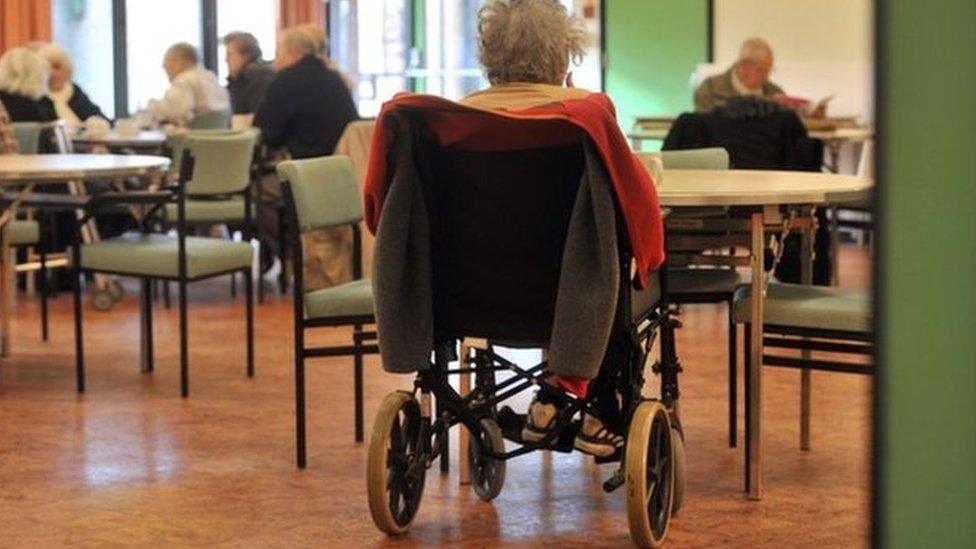
- Published9 December 2015

- Published19 November 2015
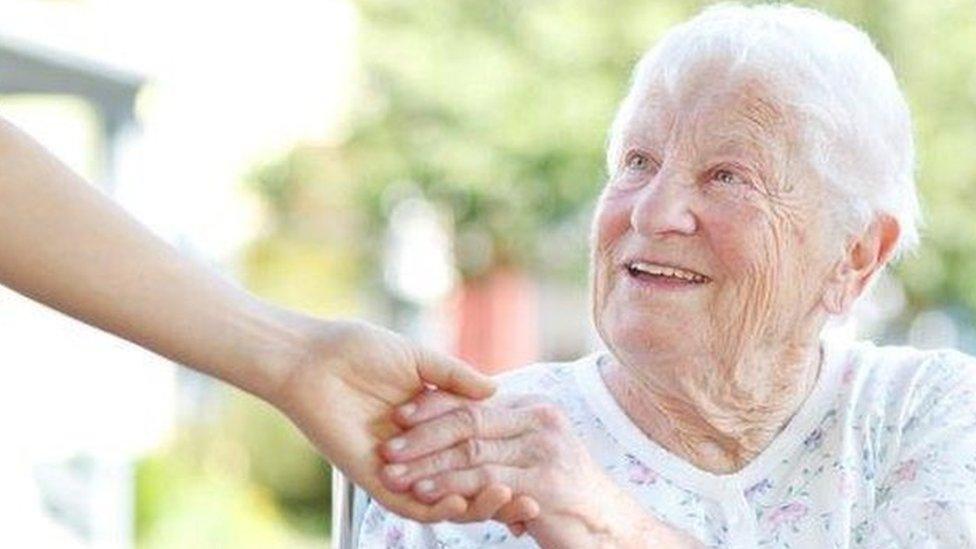
- Published7 October 2015
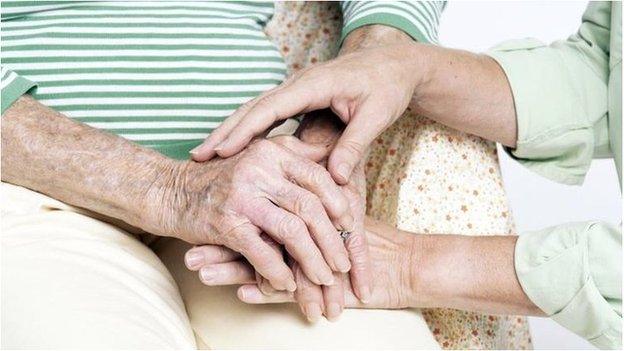
- Published17 July 2015

- Published28 July 2015













